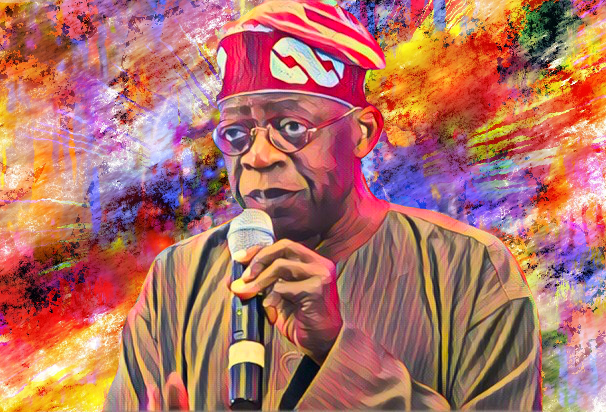President Bola Tinubu detailed why he intervened in the minimum wage negotiations with organized labor, acknowledging the economic challenges Nigerians face and the urgent need to provide relief.
In a statement from Special Adviser on Media and Publicity, Ajuri Ngelale, Tinubu addressed the leadership of the Nigeria Labour Congress (NLC) and the Trade Union Congress (TUC) at the Presidential Villa. The president emphasized his commitment to understanding and addressing workers’ concerns, resulting in the agreement on a new minimum wage of N70,000.
“I’ve heard your presentations. You sought to secure better conditions for your members during tough global times. My track record shows my dedication to easing workers’ problems. We belong to one people. Without your leadership, this job isn’t fulfilling,” Tinubu stated.
He continued, “You’ve challenged our thinking. I’ve consulted widely, reviewed the tripartite committee’s reports, and revisited them. We recognize our shared problems in this economy and must care for one another like a family.”
Tinubu likened the negotiation process to navigating tricky roads: “I must heed traffic warnings and avoid accidents. That’s why today’s meeting was necessary. We’re driving this economy together. Let’s agree on a review tenure of three years, which is more practical than two years.”
He announced, “No one in the federal establishment should earn less than N70,000. We’ll benchmark at that amount.”
Tinubu highlighted that renewing hope for Nigerians includes improving infrastructure and creating an inclusive economy. He also mentioned plans to reduce transportation costs by introducing Compressed Natural Gas-powered buses. These buses will be more affordable and efficient, with a nationwide deployment planned.
Furthermore, Tinubu assured the labor unions that the entitlements of members of the Senior Staff Association of Nigerian Universities (SSANU) and the Non-Academic Staff Union of Universities and Allied Institutions (NASU) would be addressed. He urged the Ministries of Finance, Budget, and Economic Planning to explore clearing the backlog.
At the meeting, Secretary to the Government of the Federation, George Akume, thanked Tinubu for his paternal approach and dedication to resolving the impasse. “Mr. President, at the tripartite meeting, and in our resolutions, we united as one family to promote and grow our economy and deepen our democracy. We have a listening President,” Akume said.
NLC President Joe Ajaero and TUC President Festus Osifo also expressed their gratitude to Tinubu for hosting the two meetings to review the national minimum wage. They acknowledged Tinubu’s decision to reschedule an official trip to attend the second meeting, showing his commitment to workers’ welfare.
Tinubu’s intervention in the minimum wage negotiations underscores his administration’s focus on addressing economic challenges and improving the livelihoods of Nigerian workers. By committing to a new minimum wage and other supportive measures, the president aims to foster an inclusive and supportive economic environment.
The agreement on a new minimum wage of N70,000 is a significant step in addressing the economic difficulties faced by many Nigerians. It reflects the government’s recognition of the need for immediate relief and its willingness to engage in dialogue with labor unions.
The introduction of Compressed Natural Gas-powered buses is another promising development. This initiative aims to reduce transportation costs and improve efficiency, benefiting workers and the general public.
Additionally, addressing the entitlements of SSANU and NASU members is a critical step in ensuring fair treatment for all workers. By clearing the backlog of entitlements, the government demonstrates its commitment to resolving longstanding issues and providing support where needed.
Tinubu’s approach to these issues highlights the importance of collaboration and understanding between the government and labor unions. By engaging in open dialogue and addressing concerns directly, the administration seeks to build a more inclusive and supportive economic framework.
Overall, the government’s efforts to address the minimum wage and other worker-related issues are aimed at creating a more equitable and prosperous society. By focusing on infrastructure improvements, cost reductions, and fair treatment of workers, the administration is working towards a more sustainable and inclusive economic future for Nigeria.



